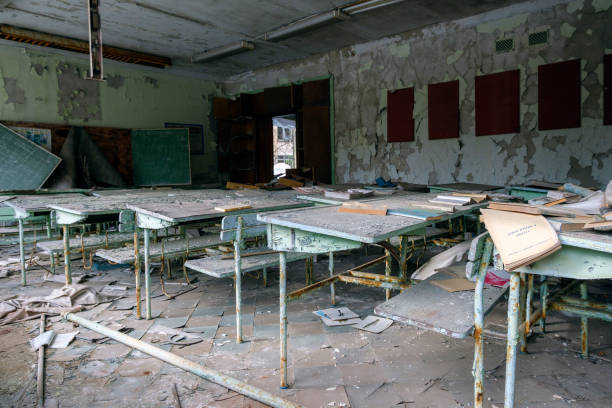
In 2014, 276 girls were kidnapped from their school in Chibok, Nigeria by an armed group. Since then, 1,600 children have been abducted or kidnapped across northern Nigeria, many of them while in school or on their way to school.
Education is vital to ensuring that countries’ economies are able to grow and succeed. Education also benefits individuals by providing them with more opportunities for work and to contribute to their society. While education is important, it is under attack globally in many countries that are going through internal armed conflict, which especially impacts primary and secondary-aged girls. The United Nations has highlighted education as one of their Sustainable Development Goals due to the world “falling far behind in achieving quality education”.
In many countries experiencing conflict, there are barriers that keep young girls from being able to go to school and receive a proper education. These impact how girls are treated in school and the type of education they will receive if they are able to. Schools are shut down due to safety concerns from the conflicts, and other schools have strict laws put on them by the government.
In order to ensure girls have opportunities to succeed and contribute to the betterment of society in these countries, there needs to be an evaluation to see the impact that conflict has on education to find ways the government and NGOs can work to keep girls safe while they are in school and work on making citizens understand the value of girls’ education. The research questions for this thesis look at 1) whether conflict will have a significant negative impact on girls’ literacy rates and 2) whether conflict will have a significant negative impact on progression to secondary school. These questions help to further evaluate the impact conflict is having on girls’ education.
The data for this thesis was collected from the World Bank and Uppsala Conflict Data Program (UCDP) websites. Education data for youth female literacy rates and females’ progression to secondary school came from the World Bank. The data for countries experiencing internal armed conflicts and the number of battle deaths came from the UCDP. There were 17 countries included in the final dataset after cleaning the data, with education data and number of battle deaths data being analyzed from the years 1989 to 2020.

The finding from the quantitative research for the first hypothesis was the relationship between youth female literacy rates and battle deaths was not statistically significant. This means that for every additional death the country experiences during a battle, the literacy rate is expected to decrease by 0.084% which is a very small change in literacy rates over time. The model suggests that battle deaths are not a strong predictor of literacy rates in the dataset.

The finding from the quantitative research for the second hypothesis was that the relationship between female students’ progression to secondary school and battle deaths was not statistically significant. This means that for each unit increase in battle deaths, the progression to secondary school is predicted to decrease by 0.16%. The effect of this predicted decrease is very small, but it will have a greater impact than the change in literacy rates over time. The model suggests that battle deaths are not a strong predictor of progression to secondary school.

While the results of the models were not statistically significant, this does not mean that the findings were not important to this research question. This model shows that although the literacy rates and the progression to secondary school are low in some countries, the change is not heavily impacted due to battle deaths. The deaths cause a negative impact even if it is very small.
The results of the model indicate that there is another factor that is impacting the girls’ education in countries experiencing conflict. Further research on this topic is vital in order to find ways that governments and NGOs can help countries keep girls in school during conflicts. There needs to be further research done to find the root problems of how conflicts are impacting girls’ education in order to solve the problems and ensure that girls are able to receive an education to then help contribute to their countries and help the economy grow.
Abbey Miller is a graduating senior majoring in Policy Analysis at the Paul H. O’Neill School of Public & Environmental Affairs at Indiana University.
Leave a Reply